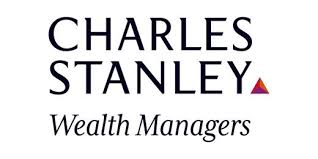This month:
Expert investment views:
Out of Eurozone equities and into a tactical increase in US dollar cash exposure, is one expert’s call
A mid-term election rally is still held probable for US equities, although valuations may not be what they seem
Investors are encouraged to appreciate the UK’s underlying strength when weighing up medium-term Gilts
Featuring this month’s experts:



1. Upping US dollar exposure to be ready for opportunities
Inflation, interest rates and geopolitics continue to dominate the investment environment. That US inflation may at last be tentatively peaking is good news for investors, but more evidence is needed for market sentiment to turn around.
The first thing we’re watching is the macro fundamentals. Although the US economy hasn’t fallen into the “true” definition of recession, more rate hikes perhaps imply a slightly higher probability of (a shallow) one within 12 months. Gas shortages will likely trigger a contraction in the Eurozone, as implied by forward-looking indicators. The UK will likely follow the Eurozone into recession, triggered by a mix of inflation, energy squeeze and rate hikes. Economic data from China has been disappointing recently and further stimulus is probably on the way.
Given this view, we’ve recently further reduced the risk levels in portfolios by decreasing the exposure to equities, in particular Eurozone equities, and instead increased the cash weighting, with a preference for US dollars, as our expectation is that the dollar will likely stay strong for now
While the rate hiking cycle has so far been fast, a slowing economy means central banks should be able to stop hiking rates at some point next year. In the near term, a catalyst we’re watching is if central banks at least slow the pace of hiking. While this time will eventually approach, we’re not there yet and there are likely to be some bumps along the way.
Given this view, we’ve recently further reduced the risk levels in portfolios by decreasing the exposure to equities, in particular Eurozone equities, and instead increased the cash weighting, with a preference for US dollars, as our expectation is that the dollar will likely stay strong for now. Our reduction of Eurozone equities is driven by the belief that both earnings and valuations are yet to adjust to the risk of recession in the region (which is our base case). While the market remains uncertain, our tactical US dollar cash exposure aims to provide an opportunity to be more dynamic in allocating capital should the right catalysts emerge.

Daniele Antonucci
Chief Economist and Macro Strategist, Quintet Private Bank
2. Will Q4 positivity prevail for US equities?
The major market reversal earlier this month was due to the premature anticipation of a Federal Bank pivot on interest rates based on job data in the US. This was dashed by the payroll data which followed. We also had no fewer than seven Fed officials confirming the Fed’s steadfast policy on inflation. Markets are now resigned to 75 basis point hike in interest rates in November, 50 in December and 25 in January, with a possible pause afterwards.
Inflation is likely to be sticky as it has moved from goods to services, including rents and wages. Wages are the focus now, with a massive jobs churn feeding into higher employment costs.
Despite the backlash on US jobs, we should note that the mid-term election rally and the Q4 positive seasonality (US markets traditionally enjoy the “Christmas Rally”) are probably still on
Despite the backlash on US jobs, we should note that the mid-term election rally and the Q4 positive seasonality (US markets traditionally enjoy the “Christmas Rally”) are probably still on. We have to be aware, however, that equity valuations are not always what they seem, due to earnings estimates not being properly updated, which will hit some sectors hard. After a hiatus, energy is resuming its leadership in equities.
The Bank of England (BoE) is in more of a pickle than the Fed. Despite the U-turn on the 45% tax rate and the BoE’s expanded intervention, gilt yields are rising more than treasuries and eurozone bonds, so the pressure is still on gilts and sterling too.

Michel Perera
Chief Investment Officer at Canaccord Genuity Wealth Management

Top Tip
As this month’s experts emphasise, investors have to weigh a variety of highly nuanced political and economic factors when making their investment decisions – and particularly so at certain points. Historic trends certainly count, but so do the vagaries of prevailing market moods.
Unpicking all of this, all of the time is often more than even the most ardent amateur likes to take on, let alone people with jobs and lives! If you would prefer to leave the minutiae to the professionals, and get the reassurance which comes from their institutional-grade research, why not let us arrange some no-obligation discussions with the leading wealth managers on our panel?

Lee Goggin
Co-Founder
3. An opportunity to buy medium-term Gilts?
The UK gilt market has experienced unprecedented volatility over the past couple of weeks. While volatility has been justified and is likely to continue, we believe that yields are attractive, and recent events have presented an opportunity to gain gilt exposure at high yields. Gilts have a remote risk of default, which would occur if the UK were unable to pay the coupon or final principal in full.
Recently, credit ratings Fitch and S&P put the UK on “negative outlook”. This move was because of the large and unfunded fiscal package (better known as the “mini-budget”) announced in September, which would likely see a significant increase in fiscal deficits over the medium term.
This has increased the risk of the UK, however; the UK is a reputable borrower, and the chances of default remain remote. It is therefore still highly likely that investors will receive coupon and principal payments in full and on time
This has increased the risk of the UK, however; the UK is a reputable borrower, and the chances of default remain remote. It is therefore still highly likely that investors will receive coupon and principal payments in full and on time.
There has been, and will likely continue to be, mark-to-market volatility in gilts. This has been caused by increasing interest rates due to inflation (bond prices move inversely to interest rates), gilt issuance and possibility of quantitative tightening (both increasing the supply of gilts, lowering the price), large debt-financed fiscal loosening, and technical factors such as levered pension funds which have exacerbated a selloff in longer dated gilts.

Oliver Faizallah
Head of Fixed Income Research at Charles Stanley
Important information
The investment strategy and financial planning explanations of this piece are for informational purposes only, may represent only one view, and are not intended in any way as financial or investment advice. Any comment on specific securities should not be interpreted as investment research or advice, solicitation or recommendations to buy or sell a particular security.
We always advise consultation with a professional before making any investment and financial planning decisions.
Always remember that investing involves risk and the value of investments may fall as well as rise. Past performance should not be seen as a guarantee of future returns.



